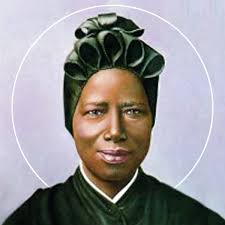HOMILY SUNDAY 26 – B
The Kingdom Priorities of Holiness and Justice
(Num 11:16-17, 25-29; Psalm 19; James 5:1-6; Mark 9:38-43, 45, 47-48)
************************************************************
“If your hand causes you to sin, cut it off. If your eye causes you to sin, pluck it out.” These are harsh words spoken by Jesus in today’s gospel. What are we to make of them?
Jesus is using what can be called Semitic hyberpole here – strong language used to drive home an important teaching, and not necessarily to be taken literally. We do this also when we say things like, “I told you a million times …”
The message Jesus is stressing is simple: to enter the kingdom of God is to make personal holiness and working for justice a priority in our lives.
We don’t speak of holiness much in our modern world, yet we are all called to holiness, to wholeness, wellness. Matthew in the gospel is an example of someone moving towards holiness – repenting, changing his life, and leaving all to follow Jesus. And as Jesus stresses, holiness is doing our best to avoid sin, which in Greek means “missing the mark.” Ultimately, holiness involves truly loving God in prayer, and learning to love others as we love ourselves.
Given the readings today, holiness also carries with it a prophetic dimension. We model for others what they should be striving for, in and out of the camp. We call others to repentance, to a change of life, and to greater holiness. That must be a priority in our lives.
St. James, in the second reading, also uses strong language with regard to a second kingdom priority – working for justice and fairness in our lives. He does not condemn the rich per se, but rather the rich who do not care for those less fortunate them themselves. Their wealth will be a trap that will spell doom for them. A priority for us, if we are to enter the reign of God, is to use our wealth, our gifts and talents, to serve others, to work for justice, to build up the reign of God through our works of service.

St Bakhita
Personal holiness and working for justice, then, are two kingdom priorities that we need to strive for in our following of Jesus. Someone who did this well is Bakitha, the African slave girl who was taken to Italy and became a saint, canonized by John Paul II in the year 2000. Once the meaning of Jesus on the cross was explained to her by the priest who was protecting her from an unjust master, she caught on immediately. She saw him as a fellow slave, because that is how the slaves were treated in Africa. She began talking to God in a very intimate, personal way every day, about her needs and the needs of those around her. And when smallpox broke out in the community, she turned the church into a hospital for those who were sick and suffering, with no thought to the possibility that she might contract the disease, something that shocked the two novices who had come to take her away.
She also naturally reached out to anyone in need including a small boy who could not speak because of the trauma he saw when his father beat his mother to death. In the end, her faith and love led her to defy pressure from her abusive master, to become a nun to serve the poor. She is a moving example of someone who truly lived the two kingdom priorities of personal holiness and working for justice.
The Eucharist is not only an experience of God’s love making us holy, redeemed and forgiven, but also a strong mandate to live out the Eucharist through just actions and loving service to others.
So, may our celebration today as followers of Jesus strengthen our personal holiness and deepen our commitment to live in the Kingdom through acts of justice and lives of loving service.



